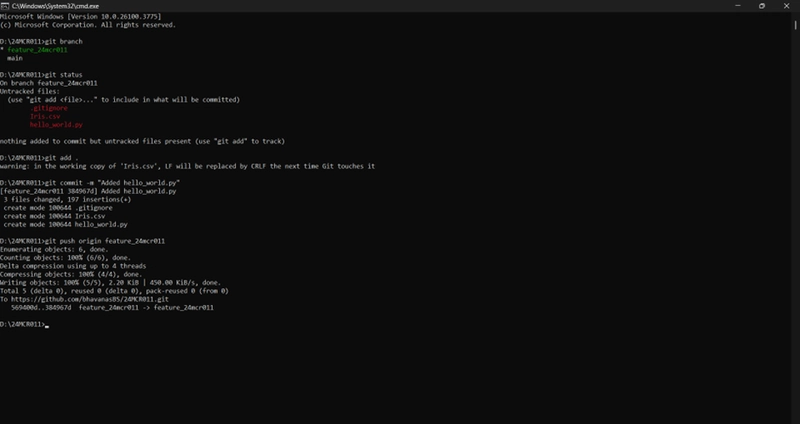Passwords Are a Ticking Timebomb—And These Breaches Prove It
Passwords have been the default authentication method for decades, but their flaws are more dangerous than ever. High-profile breaches and cyberattacks consistently expose how fragile password-based security really is. Below, we’ll examine two major case studies that highlight why passwords are failing us—and what we should use instead. Case Study 1: The LinkedIn Breach (2012, 2016, and Beyond) What Happened? In 2012, LinkedIn suffered a breach that exposed 164 million email and password combinations. Hackers didn’t just steal passwords—they cracked weak hashes (SHA-1 without salting), revealing plaintext credentials. In 2016, another batch of 117 million passwords from the same breach resurfaced on the dark web. Why Passwords Failed Weak Hashing: LinkedIn stored passwords with weak encryption, making them easy to crack. Password Reuse: Many users reused the same passwords across multiple sites, leading to credential stuffing attacks on other platforms. Delayed Impact: Even years later, these passwords were still being used in attacks. The Aftermath LinkedIn forced password resets, but the damage was done. Many users who reused passwords saw their other accounts (email, banking, social media) compromised. How It Could Have Been Prevented ✅ Passwordless Auth: Passkeys or biometric logins would have made stolen credentials useless. ✅ Better Hashing: Modern algorithms (bcrypt, Argon2) could have slowed down cracking. ✅ MFA Enforcement: Even with leaked passwords, MFA would have blocked unauthorized access. Case Study 2: The Colonial Pipeline Ransomware Attack (2021) What Happened? Hackers breached Colonial Pipeline, a major U.S. fuel supplier, causing a six-day shutdown and fuel shortages across the East Coast. The attack started with a single compromised password to an old VPN account that lacked multi-factor authentication (MFA). Why Passwords Failed No MFA: A single weak password was all hackers needed to infiltrate the network. Legacy Account Exposure: The VPN account was no longer in use but wasn’t deactivated. Password Reuse: The password may have been reused or easily guessed (though exact details weren’t disclosed). The Aftermath Colonial Pipeline paid $4.4 million in Bitcoin as ransom. The U.S. government recovered some funds, but the incident highlighted how passwords alone are insufficient for critical infrastructure. How It Could Have Been Prevented ✅ Passwordless VPN Access: A hardware security key (YubiKey) or certificate-based auth would have prevented the breach. ✅ Strict MFA Policies: Even a simple TOTP (Google Authenticator) check would have stopped the attack. ✅ Automated Account Deactivation: Unused accounts should be disabled automatically. The Way Forward: Killing the Password for Good These cases prove that passwords alone are a security liability. Here’s what we should adopt instead: 1. Passkeys (FIDO2 / WebAuthn) No passwords, just biometrics or hardware keys. Immune to phishing & credential stuffing. 2. Universal MFA Adoption Mandate MFA everywhere, especially for remote access and admin accounts. 3. Better Credential Management Password managers for generating and storing strong passwords (if still needed). Regular audits to deactivate unused accounts. Final Thoughts Passwords are outdated, insecure, and costly. The LinkedIn and Colonial Pipeline breaches show just how dangerous reliance on passwords can be. The sooner we move to passwordless authentication, the safer we’ll all be. Are you still using passwords, or have you switched to passkeys/MFA? Share your experience below!

Passwords have been the default authentication method for decades, but their flaws are more dangerous than ever. High-profile breaches and cyberattacks consistently expose how fragile password-based security really is. Below, we’ll examine two major case studies that highlight why passwords are failing us—and what we should use instead.
Case Study 1: The LinkedIn Breach (2012, 2016, and Beyond)
What Happened?
- In 2012, LinkedIn suffered a breach that exposed 164 million email and password combinations.
- Hackers didn’t just steal passwords—they cracked weak hashes (SHA-1 without salting), revealing plaintext credentials.
- In 2016, another batch of 117 million passwords from the same breach resurfaced on the dark web.
Why Passwords Failed
- Weak Hashing: LinkedIn stored passwords with weak encryption, making them easy to crack.
- Password Reuse: Many users reused the same passwords across multiple sites, leading to credential stuffing attacks on other platforms.
- Delayed Impact: Even years later, these passwords were still being used in attacks.
The Aftermath
- LinkedIn forced password resets, but the damage was done.
- Many users who reused passwords saw their other accounts (email, banking, social media) compromised.
How It Could Have Been Prevented
✅ Passwordless Auth: Passkeys or biometric logins would have made stolen credentials useless.
✅ Better Hashing: Modern algorithms (bcrypt, Argon2) could have slowed down cracking.
✅ MFA Enforcement: Even with leaked passwords, MFA would have blocked unauthorized access.
Case Study 2: The Colonial Pipeline Ransomware Attack (2021)
What Happened?
- Hackers breached Colonial Pipeline, a major U.S. fuel supplier, causing a six-day shutdown and fuel shortages across the East Coast.
- The attack started with a single compromised password to an old VPN account that lacked multi-factor authentication (MFA).
Why Passwords Failed
- No MFA: A single weak password was all hackers needed to infiltrate the network.
- Legacy Account Exposure: The VPN account was no longer in use but wasn’t deactivated.
- Password Reuse: The password may have been reused or easily guessed (though exact details weren’t disclosed).
The Aftermath
- Colonial Pipeline paid $4.4 million in Bitcoin as ransom.
- The U.S. government recovered some funds, but the incident highlighted how passwords alone are insufficient for critical infrastructure.
How It Could Have Been Prevented
✅ Passwordless VPN Access: A hardware security key (YubiKey) or certificate-based auth would have prevented the breach.
✅ Strict MFA Policies: Even a simple TOTP (Google Authenticator) check would have stopped the attack.
✅ Automated Account Deactivation: Unused accounts should be disabled automatically.
The Way Forward: Killing the Password for Good
These cases prove that passwords alone are a security liability. Here’s what we should adopt instead:
1. Passkeys (FIDO2 / WebAuthn)
- No passwords, just biometrics or hardware keys.
- Immune to phishing & credential stuffing.
2. Universal MFA Adoption
- Mandate MFA everywhere, especially for remote access and admin accounts.
3. Better Credential Management
- Password managers for generating and storing strong passwords (if still needed).
- Regular audits to deactivate unused accounts.
Final Thoughts
Passwords are outdated, insecure, and costly. The LinkedIn and Colonial Pipeline breaches show just how dangerous reliance on passwords can be. The sooner we move to passwordless authentication, the safer we’ll all be.
Are you still using passwords, or have you switched to passkeys/MFA? Share your experience below!






































































